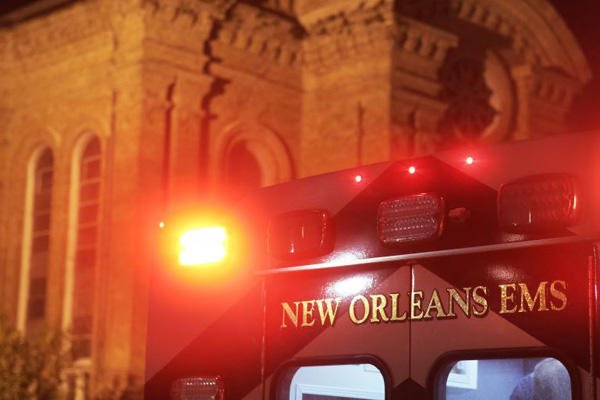Veterans are applying their military training to communities that have a history of violent -- often deadly -- crime.
When Hurricane Katrina struck New Orleans in 2005, Scott Higgins had just finished training to be a paramedic in the U.S. Army's 101st Airborne Division. So the Army sent him to help people in New Orleans for two weeks. Eventually, Higgins was assigned to Iraq, where he worked as a paramedic for 13 months. He frequently treated gunshot wounds and other battlefield injuries.
He returned to the U.S. and earned a civilian paramedic certification. Two years ago, he moved to New Orleans and began working as a paramedic. "That's definitely my comfort zone; I don't get nervous," Higgins, 30, said of the job, especially handling gunshot wounds. "You don't even think about what you're doing. Your hands just kind of go to work."
Higgins is among a group of veterans working in New Orleans, applying their military training to communities that have a history of violent -- often deadly -- crime. New Orleans is no war zone, but even a decade after Katrina, it remains one of America's most dangerous cities.
"We have a lot of shootings," said Cedric Palmisano, deputy chief of special operations and logistics at New Orleans Emergency Management Services. So the veterans' experience, he says, "goes a long way on the streets."
With their battlefield experience and ease working in structured environments, many of these veterans are trained to manage situations in which a split-second decision can determine whether someone lives or dies.
They're also driving innovation: Years ago, civilian paramedics tried to treat gunshot wounds by applying pressure directly on the wounds, hopefully stopping the bleeding. In the military, paramedics were taught to apply a tourniquet quickly to halt the circulation. Now civilian paramedics are embracing the technique.
"I was ahead of the game, coming to the civilian side of things," said Perry Lew, a Navy veteran who returned to his native New Orleans to work as a paramedic.
Earlier this year, Louisiana state Sen. Bill Cassidy introduced a bill that would make it easier for veterans with combat experience to be certified as civilian paramedics. To Higgins, this makes sense.
"To have the knowledge and experience of being a deployed combat paramedic overseas -- and applying that to being a paramedic here in New Orleans -- is a pretty easy transition," he said. "That benefits the city of New Orleans, and it benefits veterans."
Ultimately, it will save lives.
TakePart is a digital news and lifestyle magazine and social action platform for the conscious consumer and a division of Participant Media.
Find the Right Veteran Job
Whether you want to polish your resume, find veteran job fairs in your area or connect with employers looking to hire veterans, Military.com can help. Subscribe to Military.com to have job postings, guides and advice, and more delivered directly to your inbox.











